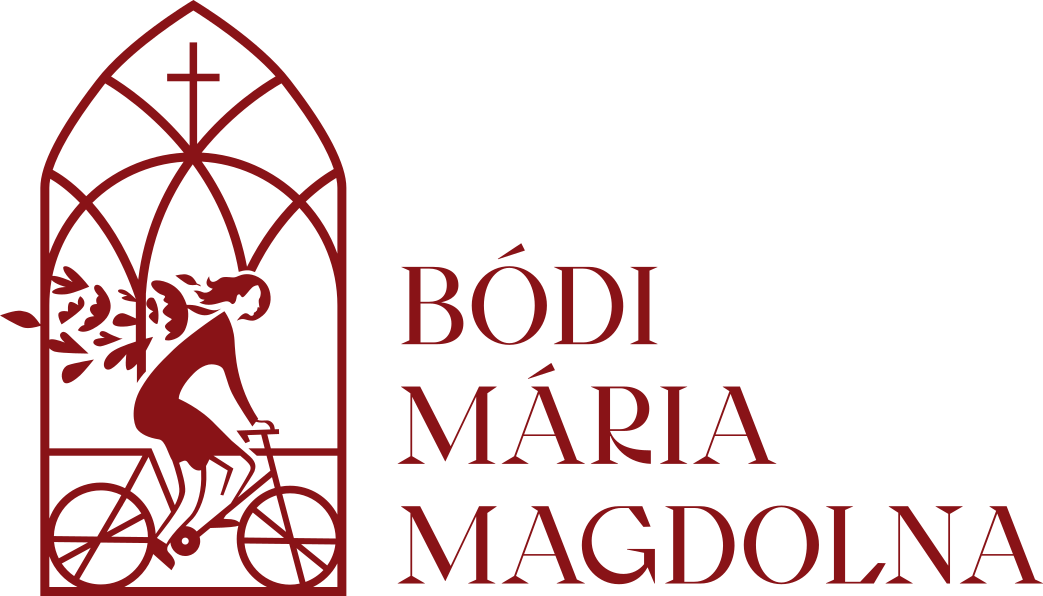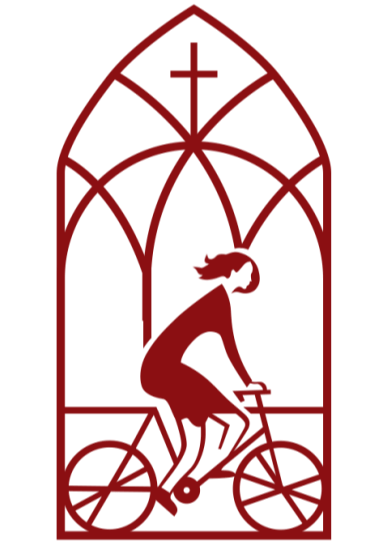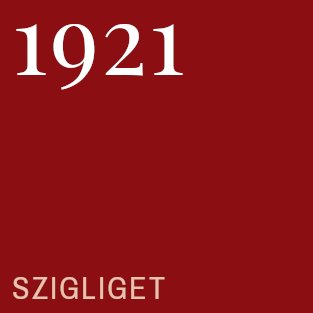

Magdi was born on August 8, 1921, in Szigliget, to poor estate servant parents. Her father returned to the country as a prisoner of war, without papers, so her parents were unable to marry either in civil or ecclesiastical ceremonies. As a result, the three siblings – Magdi, her two-year-older brother Gyula, and their younger brother János – were all born “illegitimate,” outside of wedlock.
She was baptized on August 15, the Feast of the Assumption, in the St. Michael Church of Badacsonytördemic. Even as a cheerful and studious child, her religious fervor did not go unnoticed by her teacher. During these years, the family lived in Köveskál, where Masses were rarely held. Consequently, the faithful had to travel to the nearby church in Szentbékkálla – a journey Magdi gladly undertook even as a child.
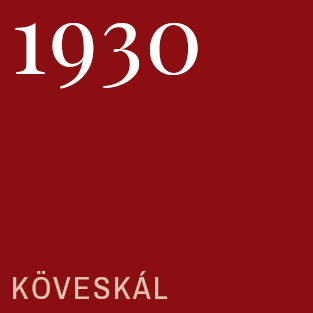
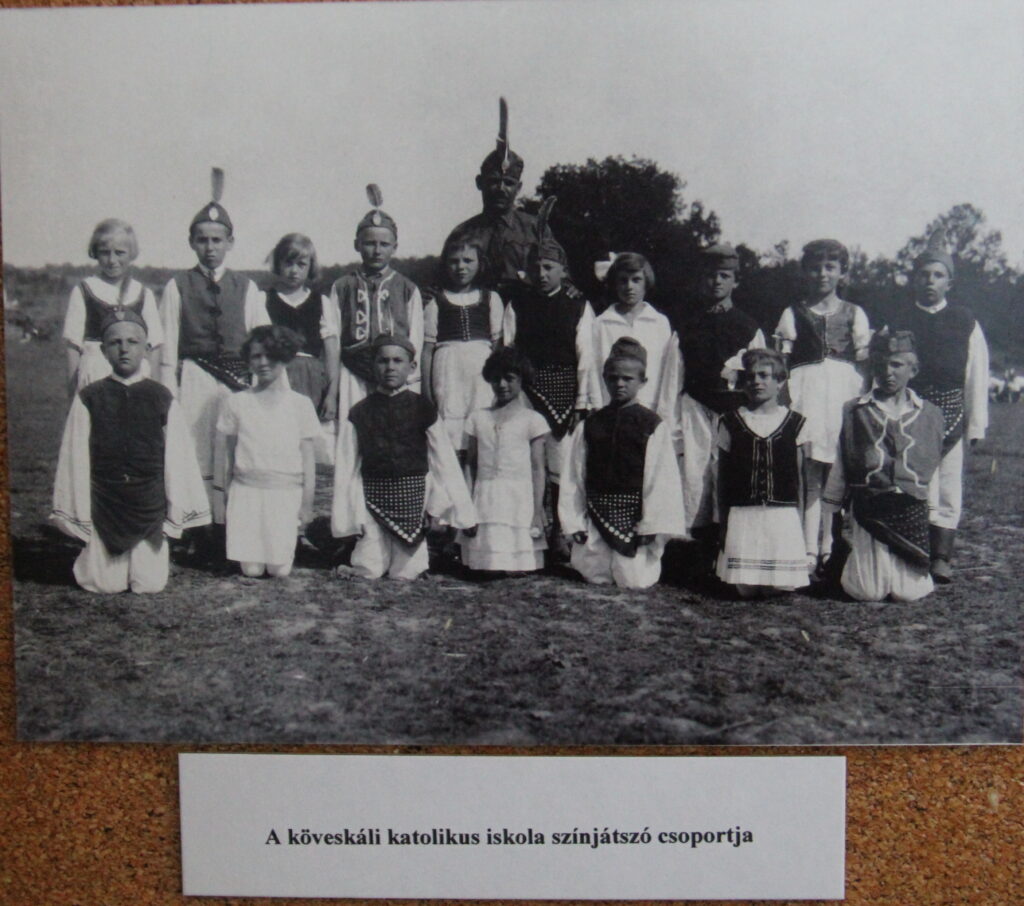
At the age of nine, as she prepared for her First Communion, her devotion to Jesus deepened. By the time she was 10 or 11, her days were filled with prayer and acts of love: she increasingly helped her mother with household chores and fieldwork, enjoyed walking in nature, loved flowers, and took care of those in need. Recollections mention that in Köveskál, she noticed an orphan being raised by his grandparents, who lived in great poverty. Magdi resolved to go door-to-door in the village to beg for warm clothes for the child – and her efforts were successful.
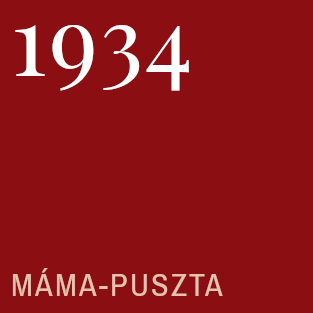
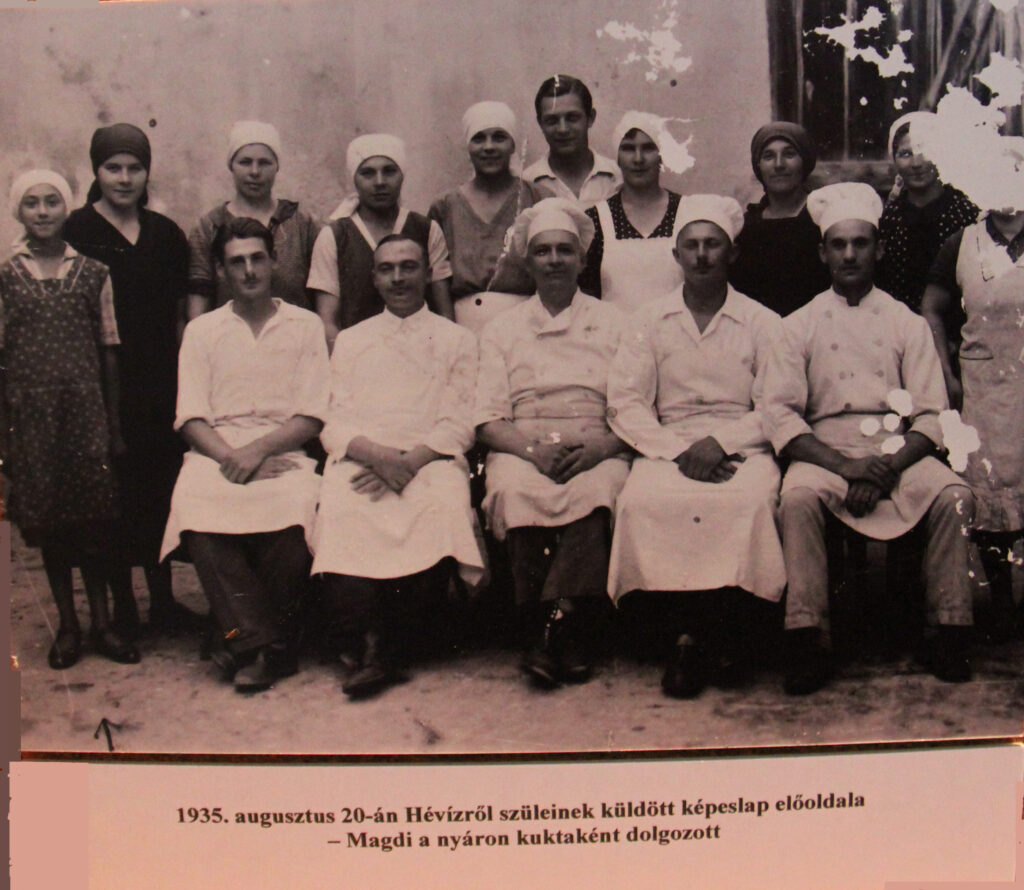
In 1934, the family moved to Máma-puszta, near Balatonkenese. A year later, Father István Androsits established the parish of Fűzfőgyártelep, becoming Magdi’s first spiritual director. He lent her many religious books, allowing her to gain a broad theological understanding. Magdi enjoyed spending time with the children of Máma-puszta, often taking them with her to Sunday Mass.
At 17, during the national mission in Balatonfűzfő, organized for the St. Stephen Jubilee Year and the International Eucharistic Congress, she discovered the path she was called to follow in order to walk closely with Jesus on her earthly pilgrimage.
„How beautiful is the life of someone who can be near to God”
– she told her brother. She understood that the religious life was her vocation, binding her wholly to Jesus. She approached Father István Androsits for guidance and finally shared her firm plan with her family. However, as a child born outside of marriage, she could never fulfill this desire due to the religious rules of the time.
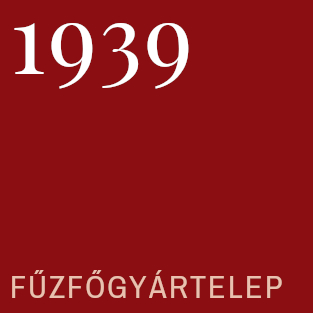
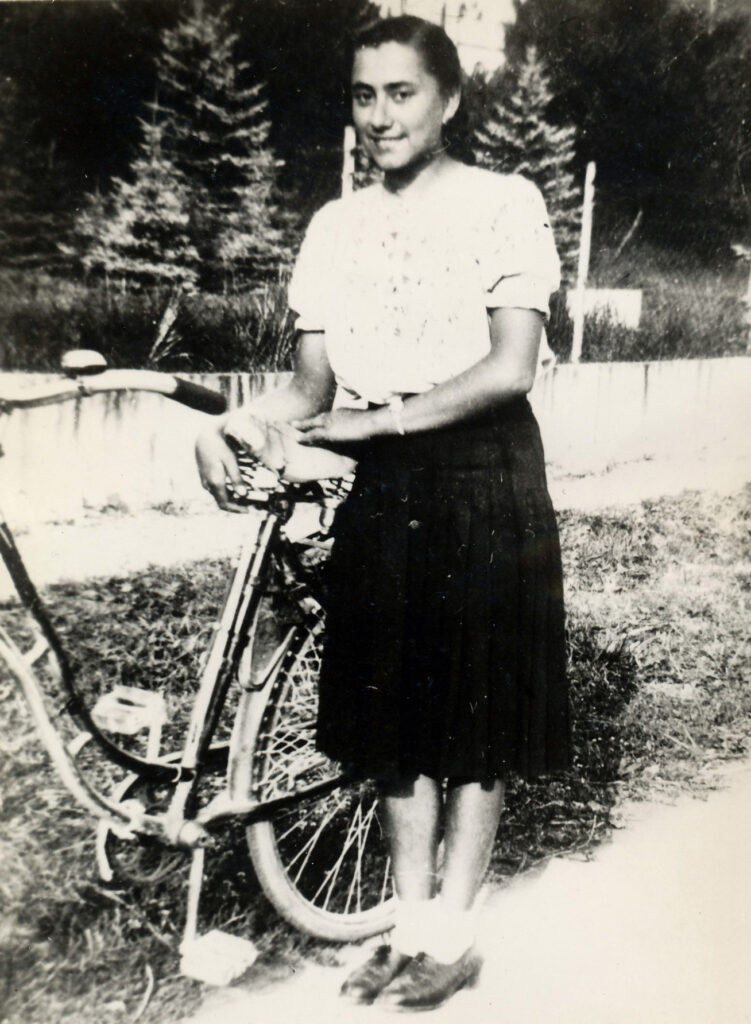
Magdi found other opportunities for secular apostolate. At 18, she became a worker at Nitrokémia Rt., a factory in Fűzfőgyártelep employing thousands. In the pyrotechnics division, where rockets and other explosive devices were made, she soon stood out for her diligence and quick learning. However, when offered a higher salary and promotion, she declined, citing her youth and arguing that married women with families needed the pay raise more.
Even as a factory worker, Magdi began her day with Holy Communion, and she calmly responded to any blasphemous comments made during work, always with clear, firm reasoning but never offensively. Her modesty, cheerfulness, and helpfulness eventually won over her colleagues, who came to respect her.
She actively participated in various charitable efforts, riding her bicycle, a gift from her father, to wherever there was need. This year, she completed her first private retreat. Despite several suitors, on October 26, 1941, the Feast of Christ the King, she made a solemn vow of virginity.
For some time, she had been involved in the Sacred Heart League, a national organization for Catholic girls and boys aged 6-14. She enjoyed leading groups of local and neighboring children, helping them deepen their faith during these activities.
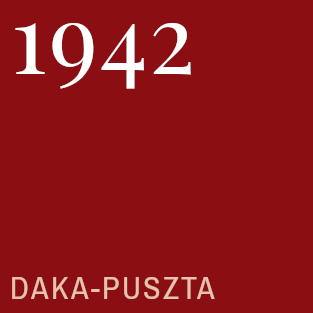
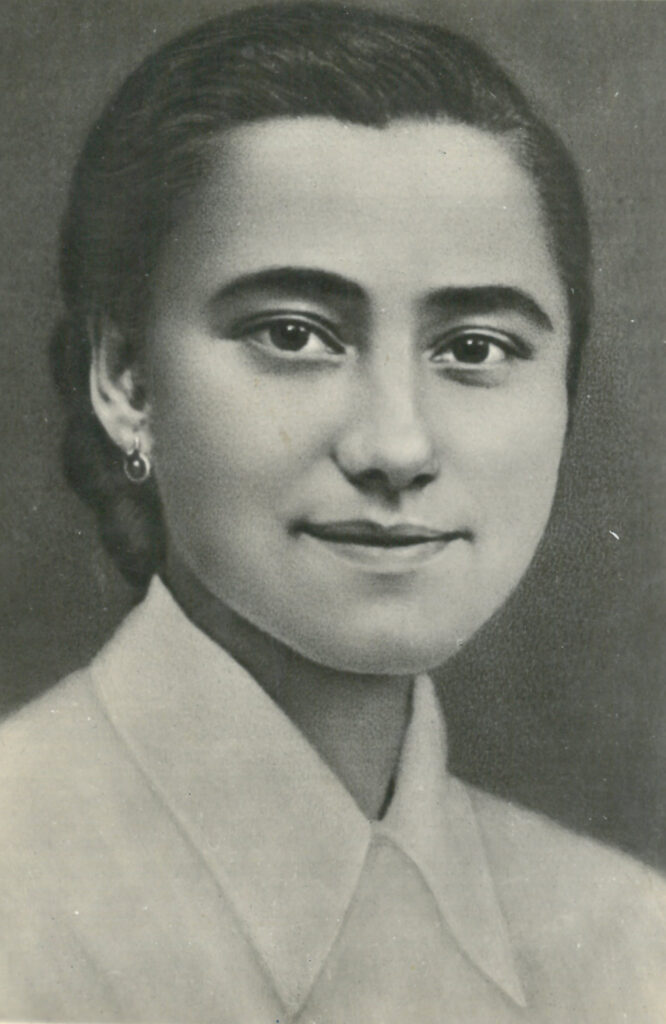
A year later, the family moved to Daka-puszta. It was around this time that Magdi was admitted into the Sodality of Our Lady, a Catholic community founded by the Jesuits. The purpose of this community was to lead its members, especially the youth, to a higher degree of self-sanctification and apostolate through the practice of Marian devotion. She became increasingly active in the Catholic Association of Working Girls, organizing groups and nurturing a Catholic worldview among industrial workers, while also helping the needy with selfless charity work.
In 1943, she enrolled in a nursing course, deciding that she wanted to serve at the front, aiding her fellow humans. Despite completing the course, she never received a draft notice. She later learned that the management of Nitrokémia had refused to release one of their best workers, saying they couldn’t replace her. By this time, Magdi was already praying that she might die young, so that her death might bring others closer to the Lord.
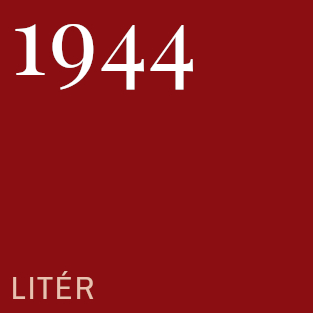
In April 1944, her family moved to Litér, where Nitrokémia owned a property. She immediately began organizing a local chapter of the Catholic Association of Working Girls. Under Magdi’s leadership, the members helped wherever they could: they packed food parcels for patients at the Balatonfüred military hospital, sewed clothes for impoverished children, and organized nursing courses.
Meanwhile, Magdi increasingly renounced earthly things in order to draw closer to Christ. By this time, disturbing reports about the violence against women had become more frequent. She encouraged her fellow women to defend their purity, and she made a personal vow to preserve her virginity even at the cost of her life.
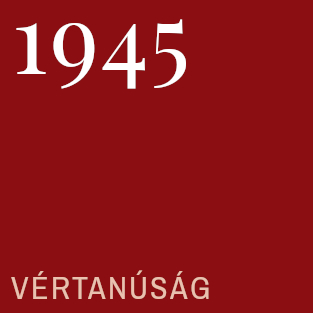
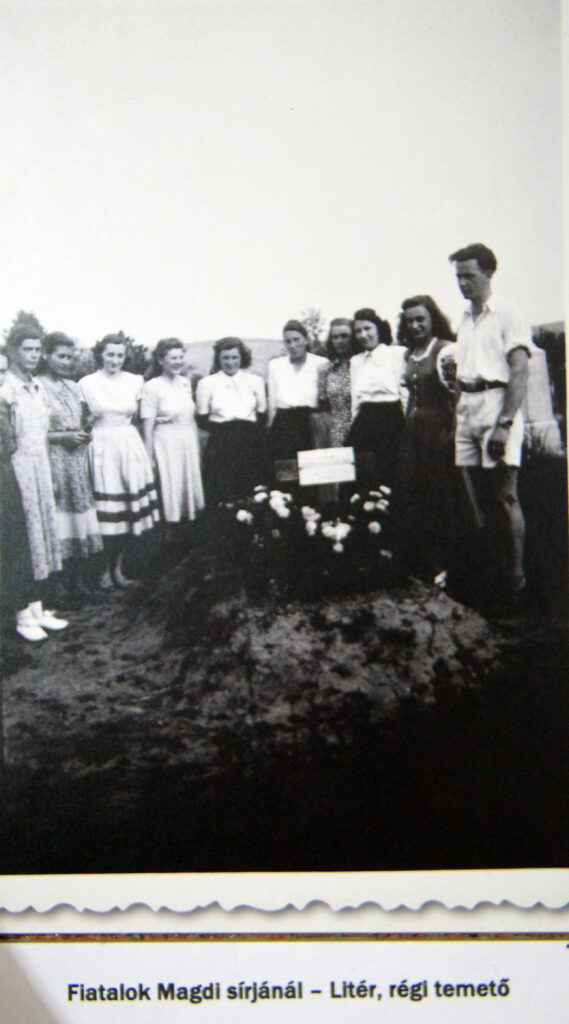
By the end of 1944, the sounds of battle grew nearer, and air raids became more frequent. The front approached Litér. Soviet troops eventually arrived in the village on March 23, 1945. The community, having suffered great losses during the long years of war, mourned the many men who had never returned from the battlefield.
That afternoon, Magdi was standing near the entrance to a shelter in the courtyard of a local manor house, together with some women and children, when two armed Soviet soldiers attacked them. One of the soldiers ordered Magdi into the shelter. She knew what awaited her, having heard many stories of the violence committed by the soldiers. Defending her purity, she stabbed the soldier with a small pair of scissors she kept in her pocket and tried to flee, warning the other women of the danger.
„Annuska, run! You’ll be next! I’m already going to die… Mother, go away, I’m going to die now!”
– she reportedly cried.
Moments later, the soldier who had attacked Magdi reappeared in the courtyard and immediately shot her. According to eyewitness accounts, six bullets pierced her body. After the first shot, Magdi stopped in her tracks; after the second, she raised her arms to heaven and then closed them with the words,
„Lord, my King! Take me with You!”
The last bullet struck her heart, and she fell forward, dead. Even in death, her fingers still clutched her rosary.
